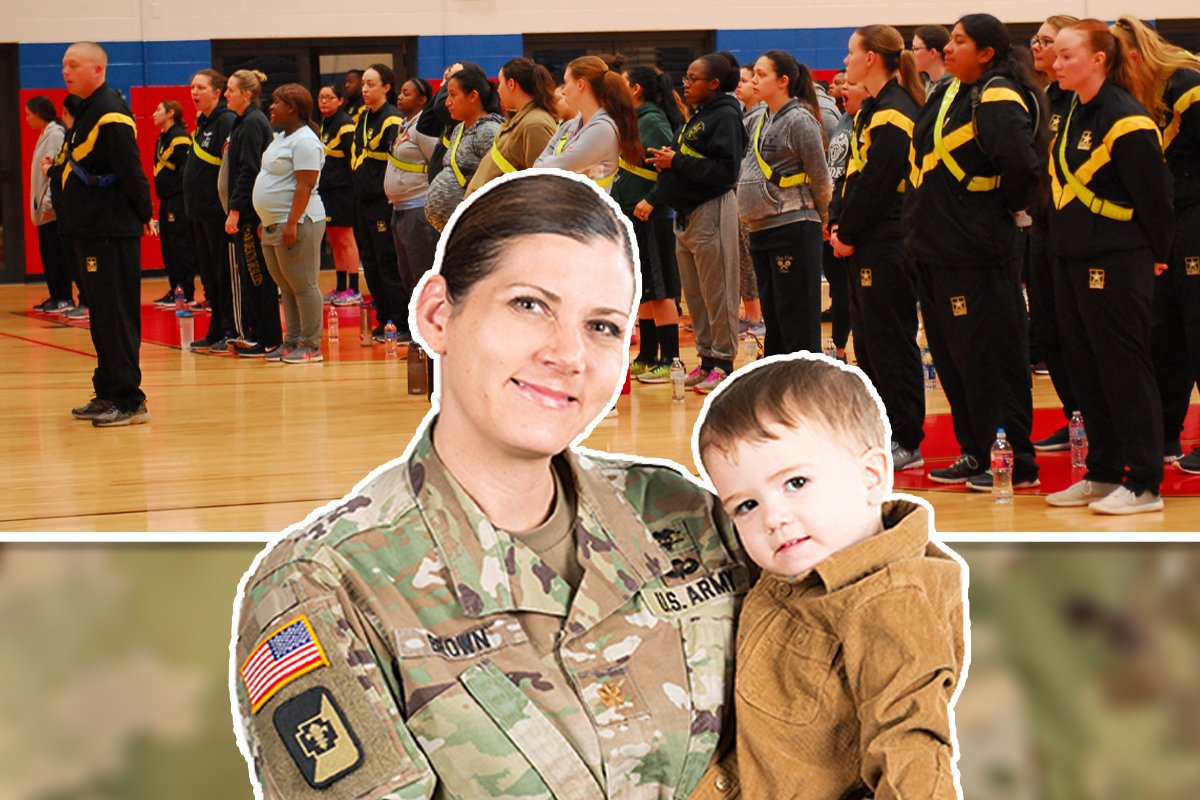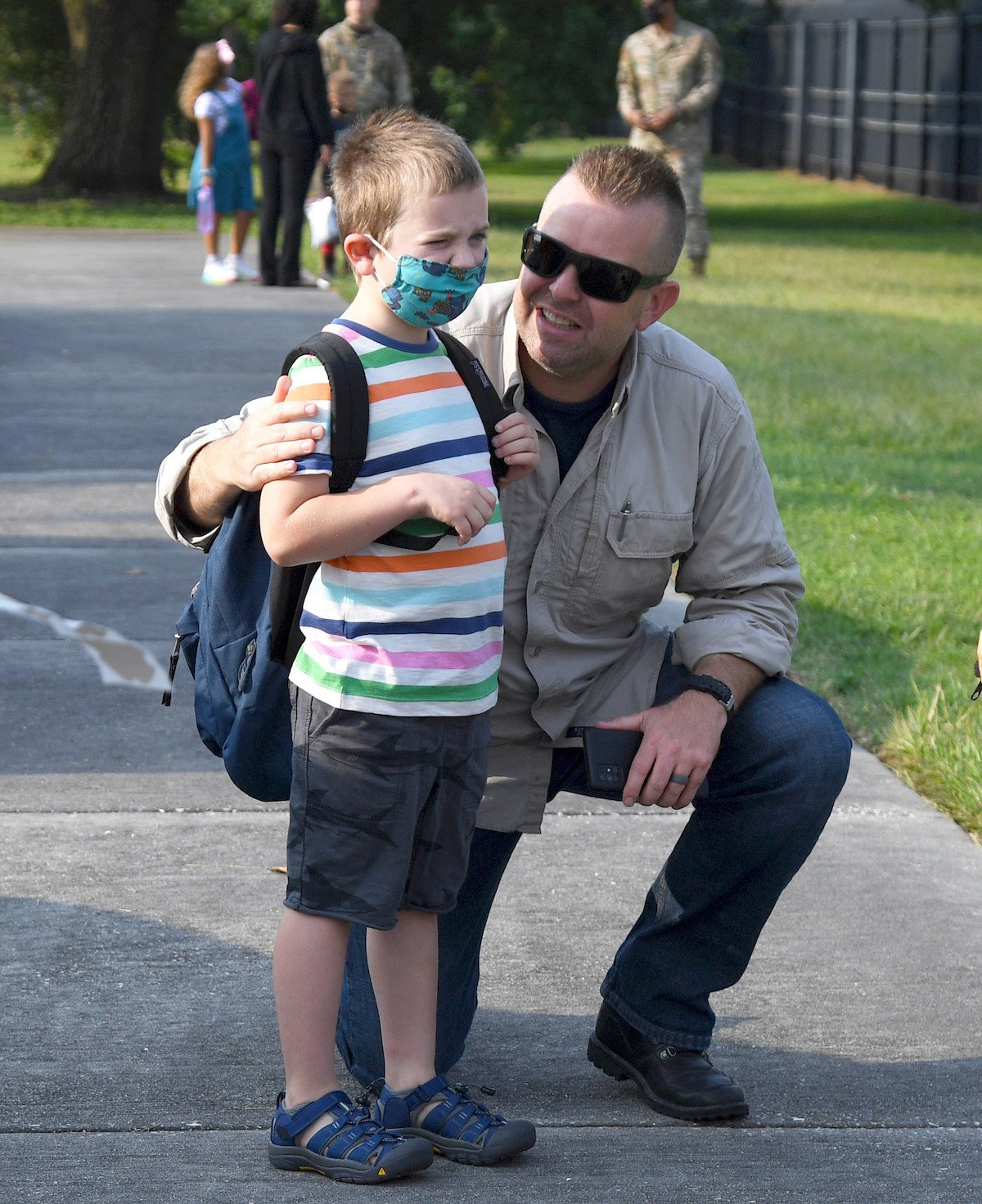New Army Pregnancy Rules Cover Miscarriages, Other Maternity Issues

The Army announced a wide range of policies this week that officials say will relieve longtime complaints of pregnant soldiers and those who are new parents. US Army photo, composite by Coffee or Die Magazine.
After a grassroots push, the Army announced major changes to its pregnancy and paternity rules Thursday, April 21. The changes were inspired by grassroots advocates, officials said, as women discussed the difficulties of sharing military duties with parental responsibilities. The most radical change to existing policy will be to allow “convalescent leave” after the natural end of pregnancy, whether by birth, miscarriage, or stillbirth. The benefit will extend to male soldiers whose spouses experience miscarriage or stillbirth.
This change was personal for Staff Sgt. Nicole Edge, who spoke at a Pentagon roundtable Thursday about her experience with a miscarriage in 2016 and receiving only two days of convalescent leave. “I actually ended up asking my doctor, ‘Hey, can I get a little more time? You know, I just lost my child. My whole life just changed before my eyes.’” The doctor denied her request because there had been no complications, so Edge took two weeks of chargeable leave, “to be able to process and mourn the loss of my family and the future I thought I was going to have.” Edge also lost her slot at professional military education to move her towards promotion because of her two subsequent pregnancies.

After her experience, Edge launched a Facebook group called Army Mom Life and co-wrote a white paper that grew into the new policy. “It is a huge thing to improve quality of life,” Edge said. “In the Facebook group we get [50-75] posts every day […] They are constantly sharing with us how [existing regulations] are impacting their career, being held back from promotion, or having difficulties being a breastfeeding mom.”
Army Directive 2022-06, signed April 19 by Secretary of the Army Christine Wormuth, outlines modifications to policies surrounding pregnancy, fertility treatment, lactation support, postpartum regulations, and bereavement.
Four of the 12 components of the directive were required by legislation. Six components are updates to existing policies, while the other six are completely new, including five that came directly from suggestions the Army solicited from soldiers.
“Winning the war for talent means making sure our best and brightest people don’t have to choose between service and family,” Chief of Staff of the Army Gen. James McConville said in a press release.

At the Pentagon roundtable, Sgt. Maj. Mark Clark spoke about his personal experience as a single parent to three children early in his career to emphasize that the policy changes will affect male soldiers as well as female soldiers. “I understand a lot of unique challenges that soldiers in that status endure,” Clark said. “Luckily for me, I had the right leadership at the time, but some of my peers weren’t always that lucky.”
Other changes include:
Lactating soldiers must be provided with lactation breaks at least every two to three hours and for no less than 30 minutes, regardless of time after the child’s birth. This requirement does not end when the child begins eating solid foods but extends for as long as the soldier continues lactating. Commanders must designate a private lactation area, not a bathroom, with a place to sit, a flat surface other than the floor, an electrical outlet, a refrigerator, and access to a safe water source.
Army Directive 2022-06
Lactation accommodations. Read. Apply. No excuses.
No one wants to hear your wife, sister, some random on FB, didn’t pump after 3/6/9/12/18 months, or didn’t need 30+ minutes every 2-3 hours. No one cares. pic.twitter.com/KSoOcxLXI5— Professor LTC (@teachescblock) April 22, 2022
Lactating soldiers remain exempt from combat training center rotations, deployments, or any training events where lactation accommodations cannot be provided for up to 24 months following childbirth.
The body composition exemption for pregnant and postpartum soldiers will increase from 180 days to 365 days after the conclusion of pregnancy. Soldiers are exempt from taking a physical fitness test during pregnancy and for 365 days after the conclusion of pregnancy. Soldiers are also exempt from other regular unit physical readiness requirements outside of the Pregnancy Postpartum Physical Training program for 180 days after the conclusion of pregnancy.
Soldiers will no longer be required to wear the Army Service Uniform or Army Green Service Uniform while pregnant and for 365 days after the conclusion of pregnancy. They may instead wear maternity and nonmaternity Army Combat Uniforms or the Improved Hot Weather Combat Uniform. Soldiers cannot be prohibited from participating in personnel actions such as attending a promotion board because of this exemption. Soldiers may also wear running or walking shoes with their uniforms if their medical profile authorizes it.

Soldiers who physically give birth are excused for 365 days following birth from all continuous duty events in excess of one day’s length. This includes such events as deployment, mobilization, field training, collective training events away from home, pre-mobilization training, unit training assembly away from home, temporary duty, and combat training center program rotations.
This deferment also applies to cases of adoption or long-term foster care placements, as well as soldiers undergoing fertility treatments. In the case of dual military parents, birth parents can transfer their deferment to their spouse or co-parent during the 365-day period, even alternating based on mission requirements.
Pregnancy and postpartum medical profiles will not restrict eligibility for officers and warrant officers to attend or graduate from professional courses that are often mandatory for promotion. The same applies to eligibility for noncommissioned officers to attend the Sergeant Major Course. Enlisted soldiers will not be required to attend any mandatory courses during the first 365 days postpartum.

Soldiers undergoing fertility treatments will be stabilized from permanent change of station and deployments for up to 365 days from the date of the first appointment while undergoing fertility treatment. Both members of a dual-Army couple will be stabilized when undergoing treatment. A 365-day stabilization will also be provided for soldiers whose spouses are undergoing fertility treatment, including when the spouse is a civilian or a member of another military service.
With regards to family care plans, commanders should provide three week’s notice for duty requirements outside of normal duty hours or for significant changes to a soldier’s normal duty hours. Commanders will take no adverse action against soldiers who cannot arrange childcare for these duties without three week’s advance notification.
Commanders must provide at least six week’s notification, in writing, before requiring soldiers to activate the long-term guardianship provisions of their FCP for duty that involves travel or extended periods of absence from the home outside of normal duty hours. This regulation does not apply to military operations assigned because of national emergency, or to soldiers in immediate response forces — soldiers in rapid deploying units must always be prepared to use their family care plans, even on short notice.
Read Next:

Maggie BenZvi is a contributing editor for Coffee or Die. She holds a bachelor’s degree in political science from the University of Chicago and a master’s degree in human rights from Columbia University, and has worked for the ACLU as well as the International Rescue Committee. She has also completed a summer journalism program at Northwestern University’s Medill School of Journalism. In addition to her work at Coffee or Die, she’s a stay-at-home mom and, notably, does not drink coffee. Got a tip? Get in touch!
BRCC and Bad Moon Print Press team up for an exclusive, limited-edition T-shirt design!
BRCC partners with Team Room Design for an exclusive T-shirt release!
Thirty Seconds Out has partnered with BRCC for an exclusive shirt design invoking the God of Winter.
Lucas O'Hara of Grizzly Forge has teamed up with BRCC for a badass, exclusive Shirt Club T-shirt design featuring his most popular knife and tiomahawk.
Coffee or Die sits down with one of the graphic designers behind Black Rifle Coffee's signature look and vibe.
Biden will award the Medal of Honor to a Vietnam War Army helicopter pilot who risked his life to save a reconnaissance team from almost certain death.
Ever wonder how much Jack Mandaville would f*ck sh*t up if he went back in time? The American Revolution didn't even see him coming.
A nearly 200-year-old West Point time capsule that at first appeared to yield little more than dust contains hidden treasure, the US Military Academy said.












